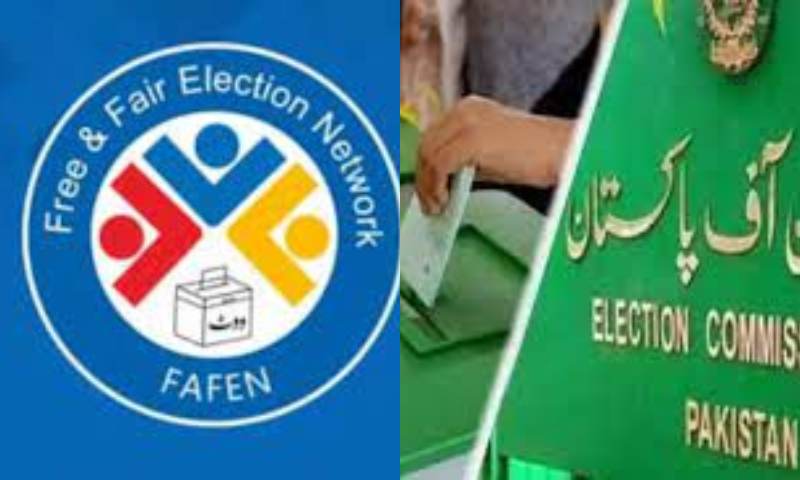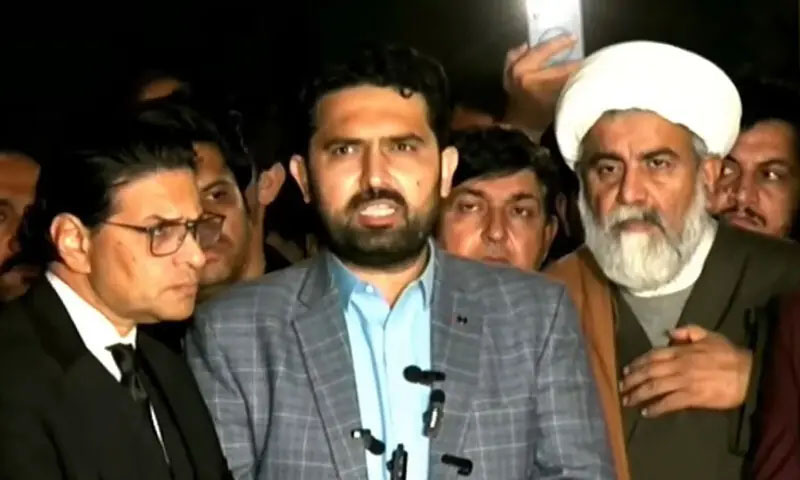- Web Desk
- Jan 31, 2026
FAFEN urges ECP to audit results of challenged constituencies
-

- Web Desk
- Feb 18, 2024

ISLAMABAD: The Free and Fair Election Network (FAFEN) has proposed a three-stage approach for the examination of election results, urging the Election Commission of Pakistan (ECP) to thoroughly investigate contested constituencies using advanced data analytics and forensic techniques to validate the legitimacy of the outcomes of the 2024 general election.
This audit, as suggested by FAFEN, must involve representatives nominated by relevant political parties along with independent observers to ensure transparency and credibility throughout the process.
In a statement, it said that since 2013, FAFEN has persistently advocated for the election commission to scrutinize results across all constituencies before officially declaring winners, aiming to fortify the integrity of election outcomes and reduce post-election disputes that often prolong legal proceedings beyond statutory deadlines.
Given the current post-general election scenario, FAFEN underscored the urgency for the election commission to promptly address allegations of irregularities and illegalities raised by political entities and candidates.
This is essential to validate that the results indeed reflect the true mandate of the electorate, it said.
FAFEN’s proposed audit methodology is a technically driven investigation relying solely on physical evidence, including official election documents available with the election commission under Section 99 of the Elections Act, 2017.
These documents encompass tamper-evident bags containing various crucial materials, such as ballot papers, counterfoils, marked copies of electoral rolls, and result forms.
The audit, structured in three stages, firstly involves assessing the authenticity and completeness of election documentation, including result forms and their consistency.
In the second stage, emphasis is placed on identifying the impact of unverified forms on election outcomes and undertaking corrective measures accordingly.
Lastly, the third stage must focus on determining accountability and addressing any discrepancies involving election officials.
The conduct of elections entails a significant logistical effort, requiring the deployment of hundreds of thousands of officials drawn from the executive and judiciary, it said.
For the 2024 general election, FAFEN said, approximately 1.5 million election and polling officials were appointed to oversee operations, including counting, tabulation, and result consolidation, which have sparked controversies and disputes.
The extensive documentation involved in the election process aims to provide a comprehensive record of results for reference in case of disputes. However, these documents are rarely revisited after preparation, except in the context of unresolved election petitions.
As challenges to election results often revolve around Form-45 and its consolidation, FAFEN urged the election commission to clarify the legality of multiple copies of the form generated on election day. The Elections Act, 2017, and corresponding rules outline various copies of Form 45, but do not specify which copy holds legal precedence in case of discrepancies, underscoring the need for clarity in such situations, it said.




